














By LEANDRA ROLLE Tribune Chief Reporter
lrolle@tribunemedia.net
WITH 71 percent of Bahamian adults overweight, the Davis administration tabled a bill aimed at curbing noncommunicable diseases through tougher food regulations and the option to tax unhealthy products
— though Health Minister Dr Michael Darville stressed the government has no plans to impose such taxes. After tabling the Health Promotion and Wellness Bill 2025 in the House of Assembly, Dr Darville emphasised to The Tribune that the bill gives
‘What role W ill Canadian Company play in eleC tions?’
By LEANDRA ROLLE
Tribune
lrolle@tribunemedia.net
Chief Reporter
FREE National Move-
ment Deputy Leader
Shanendon Cartwright urged the government to “come clean” about the possible involvement of a Canadian company in the operations of the Parliamentary Registration Department. Mr Cartwright named the company, Canadian Bank Note, and raised concerns in the House of Assembly about its potential role in handling aspects of the electoral process. He referred to comments made by Wayde Watson during last year’s


By PAVEL BAILEY Tribune Staff Reporter pbailey@tribunemedia.net
A 25-YEAR-OLD
defence force officer has been accused of indecent conduct with two
17-year-old female cadets at a defence force base last week. Assistant Chief Magistrate Carolyn Vogt-Evans arraigned DiMaggio Barrett on two counts of indecent assault yesterday.
Prosecutors allege Barrett kissed one of the cadets without her consent on March 19 in New Providence. He is also accused of touching another cadet’s
By LYNAIRE MUNNINGS Tribune Staff Reporter lmunnings@tribunemedia.net
By EARYEL BOWLEG
The grounding occurred in late March 2024, when the vessels — en route to Baker’s Bay — encountered rough seas and became stuck atop a reef in the marine park, which is managed by the
ONE year after a tugboat and barge ran aground on a coral reef in the protected Fowl Cays National Park, the vessels remain stranded, with debris continuing to destroy critically endangered coral and frustrate conservationists, divers, and Abaco residents.










from page one
National Trust (BNT).
Since then, four attempts to remove the vessels have failed, and observers say the wreck continues to shift during storms, causing new damage with each movement.
“Every time the tug shifts in heavy swells, it scrapes away more of the reef,” said Dr Charlotte Dunn, a volunteer diver with the Bahamas Marine Mammal Research Organisation.
“We’ll dive back down and find broken coral colonies, half-buried gorgonians, and fresh rubble. It’s heartbreaking to watch the corals get pounded over and over.”
Divers and environmentalists report widespread damage at the site, including twisted metal, planks, plastic light covers, chart books, and rope tangled among shattered elkhorn coral. The barge’s cargo — pea rock and sand — has spilled into the ocean, burying reef-building corals and suffocating fragile marine life.
Elkhorn coral, listed as critically endangered by the International Union for Conservation of Nature (IUCN), is one of the Caribbean’s most essential reef-building species.
David Knowles, BNT’s chief park warden, confirmed that repeated groundings have worsened the damage. A joint statement released yesterday by BNT, the Perry Institute for Marine Science (PIMS), the Bahamas Marine Mammal Research Organisation (BMMRO), and Friends of the Environment (FRIENDS) called for urgent action and expressed frustration at the lack of progress.
“During these attempts, the tug’s stern repeatedly grounded on an adjacent section of reef, pulverising corals below into rubble and sand,” the group said. The statement also questioned the lack of enforcement despite clear

laws holding vessel owners responsible.
PIMS Abaco programme manager Denise Mizell, who has led multiple cleanup efforts, said the legal and financial hurdles have left nonprofits struggling to contain the environmental fallout.
“It’s easy to point fingers at those in charge, but they can only do so much without cooperation and funding from the owner’s insurance,” she said. “Meanwhile, corals keep getting crushed, and people who treasure these waters feel powerless.”
While the Port Department has reportedly urged the vessel owners to take action, Acting Port Controller Lieutenant Commander Berne Wright previously told The Tribune that safe removal requires calm seas and specialised equipment — conditions that have yet to align. He did not respond to a request for comment yesterday.
Last April, Dr Rhianna Neely-Murphy, Director of the Department of Environmental Planning and Protection, said the owners would likely face penalties. However, she declined to provide details and said bad weather and other obstacles had delayed the recovery effort.
Environmental groups say stronger enforcement is possible under existing laws. They cited international conventions such as the Nairobi International Convention on the Removal
from page one
the government options to restrict harmful food imports.
“What is happening is all these things are put in place because there will come a time, we believe with certain types of foods coming into the country that are quite detrimental to the health and wellbeing of the Bahamian people, we may have to leverage different avenues to address keeping them out of the country, but the reality as far as taxation on products at this time, that is not the intent of the government,” he said.
The Health Promotion and Wellness Bill empowers the Minister of Health and Wellness to develop a national plan encouraging healthier lifestyles, analysing national health data, and addressing the social factors that influence public health.
It also gives the minister the authority to regulate unhealthy food products. This includes banning or restricting harmful items, enforcing stricter labelling on ultra-processed foods, and limiting the importation of substandard products.
While the bill allows for taxing unhealthy foods and beverage — subject to consultations with the Minister of Finance — Dr Michael Darville has indicated such measures are not currently being considered.
Previous amendments to the Tariff Act already permit the government to impose taxes on certain foods, but no such action has yet been taken.
Still, Dr Darville called the bill a “critical piece of legislation,” emphasising
the need for policies that promote healthier living.
He linked the country’s high rate of non-communicable diseases (NCDs) to poor habits such as unhealthy eating, alcohol use, smoking, and physical inactivity.
He said these conditions are overwhelming the healthcare system, noting that national data show 40 percent of teenagers and 71.6 percent of adults in The Bahamas are overweight.
“We are fully aware of the need for continuous action in the area of public health,” Dr Darville said. “This bill empowers us to work with the public to help them understand the importance of reading food labels carefully, spotting harmful additives like excess salt, sugar, colourants, and preservatives, so that we can make healthier, more informed decisions about what we eat.”
He said the legislation is critical, pointing to the upcoming five percent VAT reduction on unprepared foods and upgrades to primary healthcare facilities.
“It is designed to change the way we approach health and wellness in The Bahamas,” the minister added. “By focusing on prevention and promoting healthy lifestyles, we are aiming to tackle risk factors and decrease the number of our friends, co-workers and relatives who are battling NCDs and the serious medical complications associated with diseases brought on by lifestyles choices.”
Under the bill, the minister must consult relevant government officials and conduct public health education campaigns before
implementing any policies.
The government will also work with NGOs, the private sector, and healthcare providers to roll out workplace wellness and community engagement programmes.
The minister may establish additional bodies to support health and wellness initiatives and enact regulations to promote healthier nutrition environments, including guidelines for newborn and infant feeding.
A key feature of the bill is the creation of a National Food and Nutrition Commission. This five-member body — comprising public health and agricultural experts, nutritionists, and food scientists — will monitor food policies, advise the government, coordinate policy support mechanisms, and ensure compliance with health regulations.
The commission will recommend policies that improve access to affordable, healthy foods and may form expert committees to address specific issues. It will also have the authority to require organisations to submit relevant information or records for monitoring purposes and to designate officers to enforce compliance with the law. Commission members will serve three-year terms and may be reappointed.
The bill clarifies that it does not override the authority of other key officials, including the Director of Food Safety and Quality and the Director of Standards.
Dr Darville said he looked forward to debate on the bill, calling its passage a historic step for the health and wellness of Bahamians.
of Wrecks and The Bahamas’ own Environmental Planning and Protection Act, 2019, both of which empower the government to act when vessel owners fail to.
“Owners must carry wreck removal insurance and face stiff penalties if they fail to remove a grounded vessel,” the groups said. “The Port Department can also coordinate with other agencies to order salvage operations or, in some cases, remove the vessel itself and bill the owner.”
Local frustration is mounting. Olivia PattersonMaura, executive director of Friends of the Environment, said more collaboration is urgently needed.
“We really want to collaborate on practical steps that get the wreck out of the park and restore the site, but we need more than nonprofit organisations to step up to the plate,” she said.
“This is a national treasure, and it’s in all our interests to remove it before more damage occurs.”
Troy Albury, president of Save Guana Cay Reef, warned that continued delays are harming not just marine ecosystems but also tourism and the economy.
“It’s gut-wrenching to see such negligence,” he said.
“It’s a threat to everything people love about Abaco — the fish, even the tourism jobs. Every week, visitors ask, ‘Why is there a barge on the reef?’ and I don’t have a good answer.”

By KEILE CAMPBELL Tribune Staff Reporter kcampbell@tribunemedia.net
OPPOSITION Leader Michael Pintard has intensified calls for transparency surrounding the reassignment of former Acting Parliamentary Commissioner Arthur Taylor, accusing the Davis administration of removing him for being too forthcoming about election matters.
“We believe that the government has fired him because he has been actually responding to some of the key questions that we have put to the government relative to parliamentary registration,” Mr Pintard said. He suggested Mr Taylor’s openness made him a target for a government intent on controlling the narrative around election preparations.
“We found that when we reached out to him for critical questions to be answered, he was forthcoming,” he said.
Mr Taylor was recently transferred to another government agency after overseeing local government elections that were marred by delays and ballot errors, triggering public concern.
Minister of National Security Wayne Munroe claimed Mr Taylor had requested vacation leave and subsequently asked to be reassigned upon his return. However, Mr Taylor has not publicly confirmed this account. The government has not disclosed the details of his new post.

‘What role will Canadian company play in elections?’
parliamentary debate, in which the government was said to be seeking a modern solution to replace the existing parliamentary registration system and engaging a vendor to implement it.
“Nobody wants to say who the company is or confirm to say what is their involvement and it’s a serious concern when you talk about potentially a foreign company involved again in such a fundamental process
for the Bahamian people,”
Mr Cartwright said.
Mr Watson, parliamentary secretary in the Ministry of Economic Affairs, responded by distancing himself from the matter. He said he never named any vendor. “I just don’t want him to pull me into some advocacy of which he is presenting today because there’s clearly no support in that regard,” Mr Watson said. “What we’re doing in the Ministry of Economic
Affairs with respect to dig-
itisation is all in the best interest of the Bahamian people and I haven’t been made aware of any malfeasance or any disruption in the Parliamentary Registration Department.”
He added that Canadian Bank Note is not new to The Bahamas and has an established presence, noting that the company is responsible for the country’s e-passport system and has produced Bahamian currency.

Still, Mr Cartwright pressed for an official explanation from National Security Minister Wayne Munroe, who has ministerial responsibility for the Parliamentary Registration Department.
Mr Munroe has previously rejected opposition claims that a Canadian company was hired to manage parts of the electoral process. He reaffirmed his position while referring to comments Mr Pintard had made to the press.
“Marco City is a man of words and what he said to the press is that a company was managing and I simply used his words,” Mr Munroe said. “St Barnabas will learn that I will not be drawn.”
Mr Cartwright pointed out apparent contradictions between Mr Watson’s and Mr Munroe’s responses — one confirming the use of a vendor and the other denying it. “There seems to be a conflict, Madame Speaker, and
if I had to believe someone, I gone believe the member for Bains and Grants Town because he don’t just mess with words like that,” he said.
In reply, Mr Munroe noted that the former Minnis administration had also engaged foreign companies in the department’s operations.
“That is their record, so that’s why we wait to hear about concerns and not what people think,” he said.


By LYNAIRE MUNNINGS Tribune Staff Reporter lmunnings@tribunemedia.net
FINANCIAL expert
Gowon Bowe has pushed back against claims that opening a bank account is a challenge in The Bahamas, insisting the process is typically completed in less than 48 hours for most people with straightforward financial profiles.
His comments came in response to Progressive Liberal Party chairman Fred Mitchell, who dismissed the Central Bank’s recent report on account openings as misleading.
Mr Mitchell argued that while approval rates may appear high, the experience remains frustrating for many Bahamians.
The Central Bank’s 2024 report — the first survey of its kind — found that 99 percent of 28,153 deposit account applications in the first six months of the year were approved, with most processed in less than a week once all Know Your
Customer (KYC) docu-
ments were submitted.
“The problem is we don’t need the account within six months,” Mr Mitchell said in response this week. “We need it on the day we walk into the bank.”
Mr Bowe acknowledged inefficiencies in the banking system but said the delays are often due to incomplete paperwork or additional scrutiny required under international anti-money laundering rules — not systemic breakdowns.
“The reality is that very often people use a broad brush to tie the entire process, and I think it’s important to segregate certain types of accounts,” he said. “So, for the average citizen or resident who is not complex, standard salary and the source of income, all of the banks are reporting that they are able to open a bank account, certainly in less than 48 hours, and generally in 24 hours.”
He added: “This is talking about, like I said, the
low-risk, acceptable-risk customer, based on antimoney laundering laws and regulations. If you are a politically exposed person, if you are a high-net-worth person, if you are the owner of businesses that are very intense in cash collection or more complex activities, due diligence process is extended.”
Mr Mitchell has long been a vocal critic of local banking institutions, pointing to high fees, slow service, and what he described as a “forced” digital transition that ignores the country’s unreliable internet infrastructure.
Mr Bowe argued that complaints often come from people whose circumstances require more scrutiny, but who expect a simplified process. He said comparisons to foreign banking systems are not always fair or accurate.
“I think oftentimes persons who are in these categories are sometimes expecting there to be a simplified process, and often


Jarol Investments Limited is seeking to fll the following position: Assistant Compliance Manager (Freeport)
reference foreign jurisdictions where they suggest that it’s able to walk in and walk out with the same account, in the same date,” he said. “In a place like North America, they may not be a political person. They may not be actually referencing all of their ownership in construction companies or in cash and businesses like restaurants or car rentals, Airbnb, and the like. And so oftentimes, the criticisms are levied because persons are looking at there being a one size fits all.”
He said Bahamian banks operate under strict international scrutiny and must comply with rigorous standards to maintain relationships with correspondent banks — partners essential for handling foreign exchange, clearing transactions, and preserving access to global financial markets.
“People often compare today’s banking to the 1990s, but they forget that back then, we had far less

regulation,” he said. “The Bahamas has since come under intense scrutiny for money laundering, illicit trade, and tax evasion. Today, we have to meet international standards, which means greater due diligence.”
While acknowledging the need for banks to communicate more clearly and improve service, Mr Bowe said customers also need to come prepared.
“The truth of the matter is, the records have to
reflect it,” he said. “It’s inaccurate to say that it is taking so long to open accounts for the basic accounts, which are the vast majority of citizens and residents in the country.
“Secondly, Bahamians do not always do a very good job of providing all documents but I do accept that banks are inefficient and highly ineffective at times in properly explaining the necessary documents.”


NULLIUS ADDICTUS JURARE IN VERBA MAGISTRI
“Being Bound to Swear to The Dogmas of No Master”
Publisher/Editor 1903-1914
LEON E. H. DUPUCH
SIR ETIENNE DUPUCH, Kt., O.B.E., K.M., K.C.S.G., (Hon.) LL.D., D.Litt .
Publisher/Editor 1919-1972
Contributing Editor 1972-1991
RT HON EILEEN DUPUCH CARRON, C.M.G., M.S., B.A., LL.B.
Publisher/Editor 1972-
Published daily Monday to Friday
Shirley & Deveaux Streets, Nassau, Bahamas N3207
TELEPHONES
News & General Information
(242) 502-2350
Advertising Manager (242) 502-2394
Circulation Department (242) 502-2386
Nassau fax (242) 328-2398
Freeport, Grand Bahama (242)-352-6608
Freeport fax (242) 352-9348
WEBSITE, TWITTER & FACEBOOK
www.tribune242.com

@tribune242 tribune news network

WHAT has your experience been of opening a bank account?
To say there has been a range of different experiences expressed in recent times would be an understatement.
Sir Franklyn Wilson last week talked of the red tape and bureaucracy that happens before a decision even gets to be made on bank accounts.
He said: “The problem is they keep asking for more documents… the point is it’s the process of getting to the point where they say they have all the documents. They need this, they need a utility bill, they need so many things.”
He added: “A company I’m involved with, we employed a new senior executive, and just to get permission for him to sign the account took forever and ever. Just to add a signatory to the bank account, it went on and on. It’s crazy.”
Paul Moss, president of Dominion Management Services, agreed, saying: “There’s now, from my own experience, no clarity or rhyme or reason for why those document requirements change. It’s so bad for us.”
They were among a number of businesspeople who expressed doubt over claims that 99 percent of new bank account applications are approved –often “in less than a week”.
As they say, maybe by the time the decision actually gets made it is in that timeframe, but the dance to get there goes on and on.
The Tribune has itself had to clear those hurdles, with one effort to open a bank account taking longer than a year.
And if you give up on one bank and try another, well, as Ethan Quant, of Lifestyles Digital Media Group, said, “it’s like you’re switching one devil for the next”.
PLP chairman and Minister of Foreign
Affairs Fred Mitchell had his own choice words on the issue, saying of the claim about 99 percent of account applications being approved: “When you read the details, it said approval within six months. Problem is, we don’t need the account within six months. We need it on the day we walk into the bank.”
In today’s Tribune, financial expert Gowon Bowe says that for most people with straightforward financial situations, the process is typically less than 48 hours.
Mr Bowe is a sensible man, and a level-headed voice in the discussion – but at the same time, other people’s experiences are not being made up.
The problem is with this debate is that it is just that, a debate. As long as it’s just a back and forth of complaint versus justification, we won’t get anywhere.
So how about a legislative solution?
Mr Mitchell has spoken many times about his complaints about the banking system – he is in a prime position to push for action.
Should there be some form of penalties for banks that take excessive amounts of time to deal with an application?
For the banks doing the job well, that would not harm them at all. For those dragging their heels, it would be an incentive to do better.
Should there be a beefed-up complaint process to allow customers to better hold dallying institutions to account?
Good banks want to give good customer service. But the complaints about delays and bad service are too frequent to ignore. Can all parties recognise the areas to improve? And can we actually do something rather than just more talk?
EDITOR, The Tribune.
IN 1982, a report entitled “The Bahamas: A Nation For Sale” by investigative television journalist Brian Ross was aired on NBC in the United States. The report claimed Lynden Pindling and his government accepted bribes from Colombian drug smugglers, particularly the notorious Carlos Lehder, co-founder of the Medellín Cartel, in
exchange for allowing the smugglers to use the Bahamas as a transshipment point to smuggle Colombian cocaine into the US. Through murder and extortion, Lehder had gained complete control over Norman’s Cay in Exuma, which became the chief base for smuggling cocaine into the United States. Now a serious drug and gun smuggling indictment
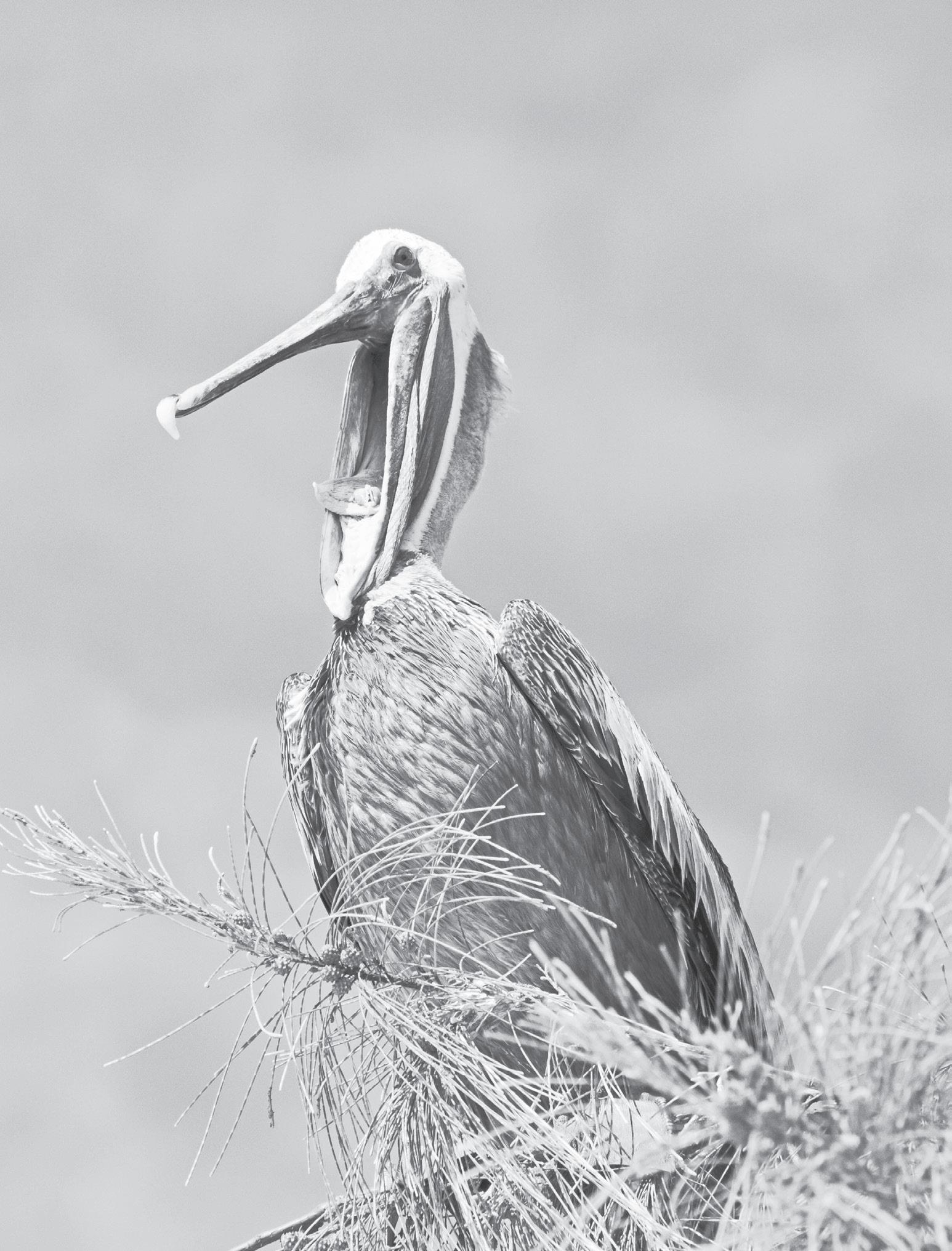

EDITOR, The Tribune. I W R ITE to lend my voice to the brewing public discussion that has been reignited recently in the local media, the call to declare March 22nd, the birthday of Sir Lynden Oscar Pindling, as a public holiday in the Commonwealth of The Bahamas. This is not a new conversation. It has circulated in public discourse for years. But now, as we mark 25 years since Sir Lynden’s passing, the time has come for decisive action, not rooted in partisanship or nostalgia.
charge has been revealed against Chief Superintendent Elvis Nathaniel Curtis, Sergeant Prince Albert Symonette, and 13 other names are accused in the matter with claims being that a high-ranking politician is also implicated. Did anything change?
DR DONALD M McCARTNEY Freeport, Grand Bahama March 24, 2025.
I submit, Sir Lynden’s contributions to the modern Bahamas, the region and internationally are beyond dispute. As the principal architect of Majority R ule and Independence, he led with courage, foresight, and unwavering commitment. From his advocacy during the Women’s Suffrage Movement, to the historic stand on Black Tuesday, to his defiant “Bend or Break” speech in Grand Bahama, to his call to dismantle apartheid in South Africa through the Nassau Accord, to his transformative leadership as our first Prime Minister, Sir Lynden shaped the very foundation of our national institutions such as Central Bank of The Bahamas, College of The Bahamas, The R oyal Bahamas Defence Force, The R oyal Bahamas Police Force, just to name a few.
Despite this, we have yet to formally commemorate his life with a day set aside for national reflection. In other Caribbean nations, leaders of equal stature are celebrated with such distinction. The R epublic of Barbados for example, observes Errol Barrow Day every January 21, honouring the father of their independence. Why should The Bahamas do less?
Currently, The Bahamas observes nine public holidays annually. The addition of Sir Lynden Pindling Day would make it ten. This is still below the global average, of approximately 11 public holidays per year. When we consider countries of similar size, population, and GDP, Barbados (12 public holidays), St Kitts and Nevis (11), and Antigua and Barbuda (11). It becomes clear that The Bahamas is not overburdened by national holidays.
The business community’s pushback against another public holiday is understandable because it is their duty to consider the economic bottom line. However, I believe that governance must strike a balance between economic considerations and the emotional, cultural, and historical pulse of the nation. A public holiday is not merely a day off but in actuality it is a day of national reflection, civic education, and pride. I would like to lend alternative perspective from a business standpoint. Public holidays, if used intentionally, boost morale, reduce burnout, and foster civic pride. A well-planned national holiday may also contribute to domestic tourism, cultural events, and community engagement, all of which offer economic opportunities in addition to national reflection. The narrative that holidays are purely economic losses is not only outdated, but one-sided.
Furthermore, this conversation cannot be purely economic. I submit that nation-building is about more than spreadsheets and quarterly
projections. It is about people, about what we honour, how we teach our history, and what we pass on to future generations. Many young Bahamians are increasingly disconnected from our national journey, not because of a lack of interest, but because our educational system has not consistently prioritised the intentional teaching of Bahamian history from primary to tertiary level, nor the preservation of the stories, characters, and movements that made this nation what it is today. This omission leaves a void that must be filled, not only in the classroom, but in our collective national consciousness.
I submit that the balance between commerce and culture, between economics and national ethos, must always be carefully maintained. Honouring our national heroes is an investment in national unity, civic pride, and the moral fabric of our future.
I further submit that March 22 should not be seen through a political lens, but as a unifying national occasion. As an opportunity to teach, to reflect, and to celebrate. This proposed holiday is about more than a day off; it is about reaffirming who we are as a people, and giving every generation the opportunity to learn from those who came before.
Let us, as a proud and independent people, take this overdue step in honouring the man whose vision gave us our voice, our vote, and our sovereignty. With unwavering commitment to the advancement of our nation and deep reverence for those who paved the way,
TAMAR MOSS, aged 35 March 26, 2025
By PAVEL BAILEY Tribune Staff Reporter pbailey@tribunemedia.net
CONFLICTING
accounts have emerged over the position of Deron Okoye Wilkinson’s body and the location of a firearm after he was fatally shot in his car by police on Independence Highway in 2018.
During an inquest before Coroner Kara Turnquest Deveaux, lead investigator Superintendent Nathaniel Gilbert and emergency medical technician Charnessa Major gave differing testimonies about the scene — specifically the reclined position of Wilkinson’s seat and whether the firearm was moved before investigators arrived.
Ms Major told the jury that she never touched the gun while examining Wilkinson’s body, contradicting earlier testimony from another officer who claimed EMS personnel had moved the weapon to treat the deceased.
That officer had given the explanation after being questioned about the position of the gun when it was photographed.
Wilkinson, 27, was killed on March 19, 2018, after an alleged encounter with police. Authorities say he pulled a weapon on officers. His family, however, dispute this, claiming he was unarmed and merely waving his phone when shot.
The officer at the centre of the case, Police Constable 3620 Lee Dormeus, was not present for yesterday’s proceedings.
Superintendent Gilbert testified that on the day of the incident, he arrived to find Wilkinson’s blue Nissan Skyline stopped on the median along Independence Drive, with its right-side doors open. He said Wilkinson was slumped in the driver’s seat wearing a red shirt and black sweatpants, and that a gun was located near his left thigh, close to his left hand.
This account differs from earlier testimony given by Sergeant Deandra Forbes — Dormeus’s partner — who said the gun was in Wilkinson’s lap after the car came to a stop. The vehicle had careened down a hill and crashed into a median following the shooting.
Superintendent Gilbert said he interviewed the officers involved, who told him they initially stopped Wilkinson’s vehicle for having dark tints. When Wilkinson failed to comply with instructions, including police sirens and a foghorn, they pursued him up a hill.
He said PC Dormeus approached the vehicle from the left and Sergeant Forbes from the right. According to the officers’ account, Dormeus fired a single shot after seeing Wilkinson allegedly reach for a gun in the glove compartment.
Gilbert testified that after Wilkinson was shot, the vehicle rolled down Beaumontia Avenue, crashed through a wooden barricade, and stopped on the median.
He collected PC Dormeus’s service-issued Sig Sauer pistol for processing and instructed Inspector Trevor McKinney to photograph the scene. Detective Corporal Demeko Bell was assigned to collect the firearm found in Wilkinson’s car. Despite canvassing the surrounding neighbourhoods the following day, including Beaumontia Avenue and Ridgeland Park, Gilbert said no eyewitnesses or security footage of the incident were found. Surveillance cameras at the Teachers Credit Union were facing the wrong direction, he added.
Superintendent Gilbert said he later interviewed EMT Charnessa Major and pathologist Dr Caryn Sands, and submitted a full report based on his findings. Under questioning from Evidence Marshal Angelo Whitfield, Superintendent Gilbert said that based on photographs of the vehicle’s tints, he would have stopped it as well for a traffic infraction. In such cases, he added, an officer could issue a warning or ticket and instruct the driver to remove the tints.
He also read a statement from the deceased’s widow, Venlesta Gordon, who wrote that she and Wilkinson were married on February 25, 2018. A Jamaican national, she said she was in The Bahamas preparing to return home when Wilkinson dropped her off at a salon that day. She said she later heard about an accident involving a vehicle matching her husband’s and immediately feared the worst. She was later interviewed by police.
During the inquest, attorney Maria Daxon, representing Wilkinson’s estate, questioned why the deceased’s body appeared reclined in a photograph.
Superintendent Gilbert replied that EMS personnel would have touched the body to render assistance. When asked who placed the unloaded gun and two bullets on Wilkinson’s lap, Gilbert said a CSI officer had done so.
Although he initially testified that the weapon was found near Wilkinson’s thigh, Superintendent Gilbert said the gun could have been cleared either at the scene or by crime scene investigators. He explained that he was not present during this stage to avoid appearing in official photographs. However, he could not confirm who dismantled the weapon and admitted that officers did not measure the distance the vehicle travelled after the shooting. Regarding the discharged round, Superintendent
private parts on the same day. He pleaded not guilty to both charges. Bail was set at $9,000 with one or two sureties. As part of his bail conditions, Barrett must sign in at the Wulff Road Police Station every Sunday by 7pm. He will also be fitted with an electronic monitoring device. He is expected to return to court on April 24. Assistant Superintendent of Police S Coakley served as the prosecutor. from page one
By PAVEL BAILEY Tribune Staff Reporter pbailey@tribunemedia.net
A MAN was granted bail yesterday after being accused of assaulting another man with a handgun outside a wash house on Joe Farrington Road earlier this week.
Senior Magistrate Anishka Isaacs arraigned 29-year-old Giovanni Rubins on a charge of assault with a deadly weapon. Rubins allegedly
Gilbert testified that the bullet entered the left side of Wilkinson’s head and did not exit. He noted that there was no gunshot damage to the vehicle, which was eventually released to Wilkinson’s family, although he could
not recall whether it was turned over to his wife or mother.
EMT Charnessa Major testified that she and her partner responded after police deemed the scene secure. She said Wilkinson had a gunshot wound above
assaulted Otis Knowles Jr with a handgun on March 23. He is reportedly in a relationship with the victim’s mother. He pleaded not guilty to the charge. Bail was set at $3,500 with one or two sureties. As a condition of his release, Rubins must sign in at the Grove Police Station every Wednesday by 7pm. The trial is scheduled to begin on May 27. Assistant Superintendent of Police K Bould served as the prosecutor.
his left ear and confirmed there was no exit wound. Using photographs, she pointed out the injury to the jury. Ms Major said she pronounced Wilkinson dead at the scene. She told the jury that she only lifted his shirt
during her examination and did not move the firearm. She could not recall if the seat was reclined when she arrived and saw no reason to reposition the gun.
Both of Wilkinson’s parents were present for the proceedings.


INFIGHTING is a regular occurrence in political parties. Nevertheless, when divisions explode and ricochet in the media and in public, questions arise concerning the stability of a party and its leaders and its suitability for office.
Though governing and opposition parties have similar kinds of infighting, there are divisions unique to government and opposition. Currently in the UK, the incumbent Labour Party, which enjoys a huge majority in the House of Commons, is experiencing mounting grumbling over its economic and budgetary policies.
Prime Minister Sir Keir Starmer and Chancellor Rachel Reeves, the first woman to hold this post in British history, are experiencing blowback mostly from the left of the party on budget cuts including, cuts to welfare, the public service, and international development aid.
Sir Keir’s premiership is not at risk. He still enjoys support in the party, buttressed by his parliamentary majority. Opposition and Tory leader Kemi Badenoch is the first black person and woman to hold these posts. Her Conservative Party was founded in 1834. Mrs Badenoch is enduring sniping from opponents within the party who are complaining about some of her policy positions and pronouncements; her communications and media strategy; what some

view as lackluster performances during Prime Minister Question (PMQ), and a number of other complaints. In office, a party has the rewards, patronage, and burdens of office. Cabinet, parliamentary and party members often spar over all three of the aforementioned. Ministers love to take credit for accomplishments while blaming others for mistakes, including their own oversights and missteps. Collective irresponsibility is a prime feature of some governments. The very same cabinet minister who will blush and obsequiously tell a prime minister what he or she wants to hear, and how wonderful is the head of government, will as quickly go behind the back of the head to stab them repeatedly




in private conversations. The thousands cuts from which a government bleeds and perishes, are typically inflicted by prime ministers, as well as warring cabinet ministers with outsized egos and self-importance.
Cabinet ministers are infamous for gossiping and briefing against colleagues they dislike.
Some ministers are notoriously selfish, stingy at doing favors for colleagues. Today’s PLP, like former FNM and PLP governments, is beset by all manner of infighting, rivalries, petty jealousies, misunderstandings, and foibles.
Despite the divisions, the desire to win and to divide




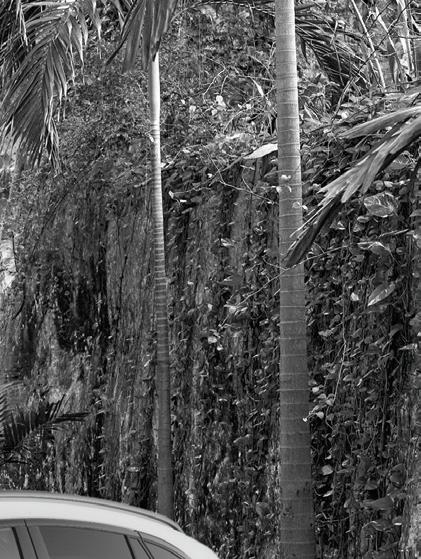


the spoils of office, tend to concentrate minds and temporarily paper over divisions. Party members have to be especially careful in the social media age, as divisions may widen, deepen, and become entrenched through voice notes, posts, and other various messages.
Journalists generally salivate over division. They delight in feeding the public’s appetite for conflict, drama, and personality clashes.
Journalists less interested in the complexity of policy discussions especially enjoy the low hanging fruit of political rows which require precious little reporting skills or research. The back and forth of such infighting is too juicy to ignore.
In opposition, parties tend to jockey more fiercely for leadership posts and nominations in preparation for returning to office. The fierce rivalry between former Prime Minister Dr Hubert Minnis and former Long Island Member of Parliament Loretta Butler Turner went to the wire, resolved only after years of fierce infighting.
In the end, the decision by Butler Turner and her colleagues to remove Dr Minnis as Leader of the Opposition backfired spectacularly.
Mrs Butler Turner and her colleagues, who were deeply frustrated by their treatment by Dr Minnis and his performance as FNM and opposition leader, had no game plan in the aftermath of his being deposed as opposition leader.
Their actions engendered a backlash and sympathy vote for Dr Minnis, who went on to lead the FNM to a landslide victory.
When voters are insistent on rejecting incumbents, it is near impossible to stem the coming tsunami-like wave, though governments desperately employ the same old tactics to save the day, such as boundary

changes, budgetary treats, road paving, new contracts, rehires, etc.
One strategy that rarely works is reminding voters of one’s accomplishments. Most voters general do not care a lick, especially when their economic fortunes are parlous. Voters want to know what you are going to do for them next time.
Public relations and communications rarely save a government when voter are intent on humbling and punishing those in power.
The FNM today is considerably more united that when the party was last in opposition. There are no threats to Michael Pintard’s leadership.
The FNM has known the depth of disunity and dysfunction. As noted last week, the party split relatively soon after its formation and in the leadup to the 1977 general election.
After the election the Bahamian Democratic Party (BDP) constituted the larger part of the FNM, the recognition of which by the majority of opposition voters led to the party becoming the Official Opposition, gaining more voters than the smaller FNM grouping.
The FNM faction under the banner of the Free National Movement, led by Sir Cecil Wallace Whitfield, lost a stunning 22 deposits.
Had the BDP contested the two seats in Grand Bahama that the FNM faction won, the latter would probably have been wiped out in the House of Assembly.
In an example of statesmanship on the part of Sir Cecil, who had come to learn a valuable lesson about unity, he stepped down as leader and put the interests of the FNM ahead of himself. After Sir Kendal Isaacs became leader, the
party made great strides. However, it is not only the FNM that has known deep division. The PLP has endured some of the deepest divisions and disunity in our political history, including the near Christmas coup of 1962, and the 1965 departure of those who created the National Democratic Party (NDP). The deepest division was the split that gave birth to the FNM.
Quite early in the PLP’s tenure in office there were mounting concerns about the increasing lack of collegiality and the growing cult of personality surrounding Sir Lynden Pindling. There was alarm over a number of policy decisions at odds with the party’s progressive philosophy.
The Bahamas Airways disaster and Freeport, including the Benguet Affair, prominently figured in the concerns of those alarmed at the direction Sir Lynden was taking the country. There was the widespread view that the young premier was dragging his feet on promises made by the PLP.
There were originally more dissidents than the eight who finally left to form the Free PLP and then the Free National Movement.
But when the vote of no confidence came, some of the more insistent critics of Sir Lynden and the direction of the PLP, buckled in their convictions, absenting themselves from the House chamber with dubious excuses or failing to vote with the dissidents.
Both major parties have experienced historic divisions, which pale in comparison to the infighting in the PLP and FNM today. More on this history of division and disunity next week.

By DENISE MAYCOCK Tribune Freeport Reporter dmaycock@tribunemedia.net
DOZENS of job seekers lined up from as early as 7am in Freeport yesterday, hoping to secure one of more than 600 positions offered through a hiring drive linked to Carnival Cruise Line’s Celebration Key project.
The job fair, hosted in partnership with Grupo Andersen and the Ministry of Labour and Public Service, marks one of the largest employment opportunities Grand Bahama has seen in years. By 11am, more than 100 people had already registered for positions in food and beverage service — including cooks, bussers,
bartenders, runners, cashiers, stewards, warehouse clerks, and maintenance workers.
“People are coming prepared with necessary documents and are being interviewed on the spot,” said Princess Flowers, officer in charge of the Public Employment Services Unit in Grand Bahama. “We’re quite impressed with the turnout.”
Ms Flowers said the company aims to fill all positions by the end of the month to allow time for training and encouraged even those with no prior experience to apply. The job fair will continue over the next two days, with more departments expected to open beyond food and beverage.
For residents like Emile Jarrett, the job drive is more than just a hiring event — it’s a lifeline.
“It is an exciting opportunity because Freeport has been waiting for something like this for so long,” Mr Jarrett said. “Just knowing that 600 positions are available is amazing. I feel like Freeport needed something like this for a very long time. I am happy that locals are getting the chance to thrive.”
Grupo Andersen is a major international restaurant operator behind brands like Señor Frog’s, Carlos’n
Charlie’s, El Squid Roe, and several others. The company has operations in Mexico, South America, the Caribbean, Europe, and the US.
Another applicant, Zaire Clarke, said the scale of opportunity was encouraging: “There are so many different options — not just one area — so it’s really covering a wide range of people and providing work for those who are unemployed.”
Saliah Rolle said she hopes residents don’t miss their chance.
“Today was focused on food and beverage, but tomorrow they will have openings in different departments,” she said. “I encourage people to come out and apply.”
Others remained cautiously optimistic. Donald, a job seeker who previously applied at a similar fair without success, said he hoped this time would be
different. “I’m trying to get a supervisor or warehouse runner position,” he said.
“My experience today was good.”
Ms Flowers said the government’s partnership with Grupo Andersen is part of a broader effort to restore job growth and stability to Grand Bahama.
“We want to increase employment in Grand Bahama, and this is a great opportunity for those who may have even left the island because of employment,” she said. “This is an opportunity for them to come back home.”
She credited Labour Minister Pia Glover-Rolle with helping to secure the partnership and emphasised the ministry’s focus on training, access, and equity.
“There is a lot of excitement,” Ms Flowers said.
“People are happy for this opportunity, and we are grateful to be part of it.”



US president Donald Trump’s slavering appetite for Greenland and even Canada grows. Elections in Australia, Canada and Greenland focus on the American president as a central, if not determining, issue in these elections. His tariffs are scaring everyone.
What will curb Trump?
One liberal friend is certain he knows the answer. “It will be the stock market,” he asserted confidently. “If it falls, he will pull back. That’s what moves him.”
It’s true that the Dow Jones Industrial Average gained around 50 percent in value over the span of Trump’s first term. (It continued to rise, gaining another 33 percent under his successor Joe Biden.) And overall, the stock markets in the US have pushed slightly ahead in the early months of Trump’s second administration. He often boast about this.
So my liberal friend figures that when the stock exchanges inevitably correct to account for what he figures is an inevitable recession, the American president will pay attention and ease up on tariffs.
Just this week, on Monday the Dow Jones surged by over 600 points, reportedly on rumours that Trump was going to pump the brakes on several of his most dramatic tariff decisions and give the world’s economy some space to take a breath.
Meanwhile, the Trump tariffs have remained headline news in the capitals and commercial centres of America’s most prominent Asian allies. In Tokyo, Seoul and Sydney, there remain hopes for a satisfactory resolution of this troubling issue even as Trump’s mercurial, transactional approach gains momentum.
During the first Trump administration, Japan, South Korea and Australia all managed to negotiate much improved trade and tariff terms with the US. Hopes persist for a repeat performance, despite the president’s insistence that it won’t happen again. This trade is critical.
South Korea, for instance, is one of the five top steel and aluminum exporters to the US, selling $4.5 billion worth of steel and steel products and over $1 billion of aluminum products to the US last year. Japan shipped over $2 billion of steel products to America, and Australia sold 35 percent of its overall exports to the US.
Down under in Australia, the scene is emblematic of policy and political crises across the globe in the wake of Trump’s assertive nativist economic policy.
Australia is preparing for May elections to be called at any time now. Last month, a banner headline in The Australian declared “PM steels for Trump tariff test.” The Australian is the only nationally distributed newspaper in the country, owned by billionaire news mogul Rupert Murdoch’s News Corporation, and generally tilts to the right politically.
Current Aussie Prime Minister Anthony Albanese, who leads a liberal-leaning government, has been in The Australian’s crosshairs for months. Partly because of its emphasis on the tariff issue as a measure of Albanese’s leadership skills, the PM and Trump have stayed firmly in the headlines.
One columnist wrote that the tariff crisis “is going to require deeper engagement by Albanese. The Left will be appalled if the prime minister grovels before Trump. The country will be appalled if he fails. Albanese’s risk is that he may fail at both.”
One of the prime minister’s predecessors urged


him, in dealing with Trump, to “argue Australia’s case without sucking up.”
Another columnist wrote that “the PM is facing a diplomatic minefield here – it could so easily blow up in his face.
“The biggest risk is that Trump has become so enamoured with tariffs as an instrument of policy that he is willing to levy them across the board indiscriminately, regardless of merit, thereby hitting all countries – including close allies – which export steel and aluminum into the US.”
Albanese, like political leaders throughout the world facing Trump’s seemingly whimsical policy decisions, vows to stand strong even as he faces economic headwinds heading into the upcoming general
election.
“Australian people know I will always stand up for them and stand up for Australia’s national interest,” he asserts.
Meanwhile, north of the US border in Canada, political advertisements are saturating Toronto radio and television stations. Many focus on which candidate and party can best withstand Trump’s economic and political imperialism.
The BBC reported on the upcoming general election in this way:
“Voters will consider which party should govern the country just as the US - its neighbour and largest economic partner - launches a trade war and President Donald Trump muses about making Canada the 51st US state.
“Domestic issues like housing and immigration will still be important, of course, but for the first time in decades, Canadians will also be grappling with fundamental questions about the country’s future when they head to the ballot box on 28 April.”
A political strategist and policy director for former Liberal Party prime minister Justin Trudeau told the BBC that “it is impossible to overstate the impact of the president’s actions on Canadian politics, on Canadian psyche, on Canadian business.”
The BBC commentary continued. “Trump’s interventions have already reshaped politics in Canada, helping transform what seemed like a certain
Conservative victory into a too-close-to-call battle with the Liberals.
“And on Sunday, as campaigning began, all the party leaders focused their launch messages heavily on the US threats.”
Trump will be relishing his predominant role in the upcoming Canadian general election. His antipathy toward Justin Trudeau, an elitist left-leaning politician who has publicly snickered at Trump for years, is well known. Many commentators figured Trump would favour the opposition Conservative candidate.
But not necessarily.
Trump has already started to make his views on the election known. He told Fox News host Laura Ingraham last week that Conservative leader Pierre Poilievre is “stupidly, no friend of mine” and that it may be “easier to deal actually with a Liberal.” Former Bank of England governor Mark Carney is the Liberal candidate.
Canada is crucial as global warming has created a new political, economic and strategic battleground in the Arctic. As polar ice melts, activists worry about the future of polar bears and native peoples, and strategists ponder how best position their nations to take advantage of this rapidly evolving phenomenon, Trump has thrust the US into the center of all relevant discourse on the region. He continues to comment on a potential annexation of neighbouring Canada as what he calls a “51st state”. Canada of course consists of ten provinces, including Ontario with 40 percent of the nation’s population and Quebec with its largest land mass, plus three socalled ‘territories’ in the far north and northwest of the country.
But with a total population of 35 million, Canada is placed midway between the largest (California) and second most (Texas) populous American states. Most Canadians also live quite close to the US border.
Usha Vance, the brilliant wife of the US vice president, meanwhile, has announced that she and one of her kids are planning a visit to Greenland to watch a dog-sled race and partake of various other aspects of the culture of the world’s largest island (Australia, four times the size of Greenland, doesn’t count as an island because it’s a continent). No one believes this is a coincidence. Trump’s son visited earlier this year. Trump makes no secret of coveting Greenland’s reputed wealth of rare earth and other precious minerals thought to be essential for future technological advancements. The island’s strategic importance will only accelerate as the polar ice cap recedes.
Greenland, like Australia and Canada will soon do, has staged general elections this year. Some political polling was done in connection with the elections, and the American National Public Radio issued this report about Greenlander attitudes:
“An opinion poll published in January showed that an overwhelming number of Greenlanders favour independence. The survey showed that 84 percent wanted independence from Denmark, while 45 percent said they only want it if it doesn’t hurt their standard of living. Only nine percent said they didn’t want full independence from Denmark and just six percent were in favour of becoming a US state.
“A key message from the recent general election vote is directed at Trump, according to a senior researcher at the Danish Institute for Strategic Studies: ‘If [he] had any idea that his invitations and threats … would be welcomed … he’s done himself a disservice.’ Instead, the researcher says, the results indicate that Greenlanders are pushing away and are actually becoming more reluctant to engage with the US.”


all participants in government-approved emissions reduction efforts to file detailed annual reports — or risk fines of up to $10,000 and the loss of eligibility for green incentives.
The new rules are a part of the country’s strategy to track emissions and hold entities accountable as The Bahamas pushes to slash national greenhouse gas emissions by 30 percent by 2030.

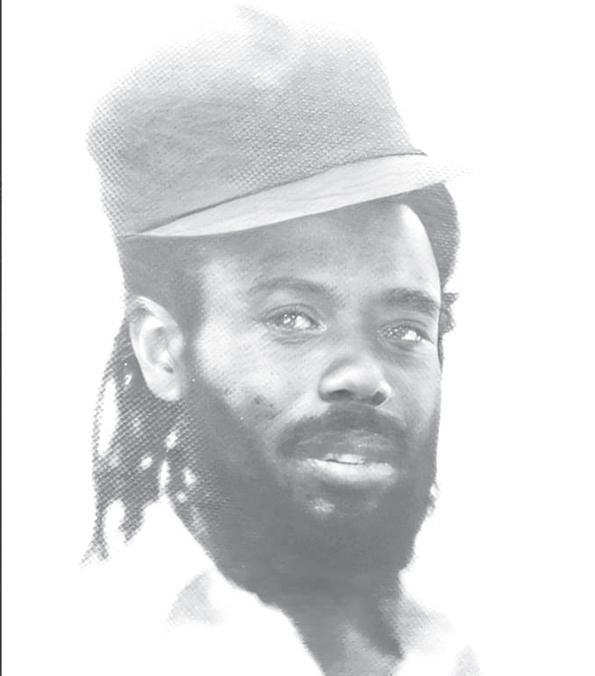
a resident of Narcissus Avenue, Garden Hills #1, New Providence, Bahamas will be held at God’s Dwelling Place Ministries International, Harrold Road on Saturday, March 29, 2025 at 11:00am. Offciating will be Apostle Dr.Bradley assisted by other ministers of the gospel.
He is survived by his children: Shekera MossJohnson, Haletine Moss-Stuart, Pedro Moss Jr.; sons-in-law: Colin “Tito” Johnson, Kevin Stuart; grandchildren: Colinique Johnson, Prison Offcer Shandon Wells & Ansonique Moss, Pedro Moss III, Brooklyn Moss and Lightning Moss; brother: Dave Seymour, Sr.; sisters: Jacqueline Johnson of Texas, USA, Mitzi Seymour of Gainesville, Florida, USA and Shenequia Seymour of Maryland, USA; sisters-in-law: Cheryl Seymour, Grace Seymour; aunts: Elva Stubbs, Emeline Lockhart, Gertrude Seymour, and Monica Stuart; uncles: Alan Stuart, Solomon Stuart, Hayward Dorsette Sr. of Freeport, Grand Bahama, Bahamas Glen Seymour Sr. of West Hollywood, Florida, USA; grandaunt: Neutie Seymour of Hatchet Bay, Eleuthera; Bahamas nephews: Dave Seymour Jr., Rasheed Seymour, Davon Seymour and Kendrick Seymour, Tommy Robinson Jr., Taron Robinson, Robin (Zoya) Seymour, Mario Bain, Junell Bain and Daniel Joshua Dames; nieces: Joanne Higgins, Alexandra Seymour, Shenique (Rodney) Smith, Phasarya Johnson, Phantevia Johnson, Taniesha (Jontrelle) Dixon, Reshay (Christopher) Moss; grandnephews: Taron, Connor & Cash Moss, Izaiah Dixon; grandnieces: Valencia Davis, Decoda Higgins, Donovan Higgins Mikayla Dixon, Kitana Moss, Brooklyn Seymour, D’mei Seymour; adopted daughter: Julianne Andrews; god brother: William “Trin” Newbold; cousins: Betty Stubbs, Michelle (James) Coleby, Barry (Marsha) Stuart, Brenda & Melanie Stuart, Cassvern Stuart, Anishka Cox, Karen, Moss, Ian (Marion) Stubbs, Valerie Stubbs, Tanya (John) Williams, Nancy (Douglas) Conyers, Brando (Theorelle) Stubbs, Margaret Pratt, Dirklyn (Joanne) Munnings, Derand Munnings, Harley (Lillian) Munnings of Lauderhill, Florida, USA, Angieanne Munnings, Zendora Munnings, Keith Smith, Paige Smith, Renaldo Smith, Sarahnecia McPhee, Ethelyn Seymour, Tammy Seymour, Christine (Donald) Germelus Seymour, Agnes Seymour, Carla Seymour, Hayward Dorsette Jr., Patrick, Drexel & Emory Curry, Emrick (Deann) Seymour, Louis (Sandy) Seymour, Glen Seymour (Jr.), Patricia (Carl) Seymour-Smith of West Hollywood Florida, Cardinal Seymour Jr. of Homestead Florida, Don (Stephanie) Seymour, Danny (Meri) Seymour, Jerry (Margaret) Seymour, Ross Seymour of Hatchet Bay, Eleuthera, Floyd Seymour, Peggy Newbold, Percy Munnings, Remelda Seymour, Francita Seymour, Renee Walkin, Kemuel Stubbs, Patrice Stubbs, El Vara Gilbert, Dave Gilbert, Marquetta Collie George Sands, Yasmine Strachan-Rolle, Willamae Cambridge- Cash, Annie Nora Burrows & Family Annabelle Burrows & Family, Una Bain & Family, Andrea Lightbourne, Shirley Sturrup, Rueben Stuart & Family, Halbrook Stuart & Family, Rev. Cecil Newbold; other Friends and Relatives to include but not limited to: Apostle K. Bradley Moxey & Apostle Terry Moxey & Family, Harry, Julian Deveaux, Mary Bodie & Family, Special Olympics Bahamas, Stapledon School, Craig Deveaux, Dwight Coleby & Family, The Moss Family, Cheryl Clarke & Family, Mary Knowles & Family, the entire Narcissus Avenue, Garden Hills #1 community, and a host of other relatives and friends too numerous to mention
Relatives and friends may their last respects at Newbold Brothers Chapel, Palmetto Avenue and Acklins Street on (TODAY) Thursday, March 27, 2025 from 4:00 to 6:00pm.
The regulations create a new National Emissions Registry, which will track emissions data, record permits, and assess whether the country meets its stated targets. They are the first to be enacted under the Climate Change and Carbon Market Initiatives Act, passed in 2022. Participation in the emissions reduction programme is mostly voluntary. People, businesses, and nonprofit entities can apply to launch or join projects to cut emissions. Permit fees range from $75 for residential applicants to $300 for commercial entities, and applicants must submit proposals showing how their projects
reduce emissions, support national climate goals, and deliver benefits to local communities.
However, the regulations also introduce mandatory obligations for certain sectors. Entities operating in industries identified in The Bahamas’ Nationally Determined Contributions — such as energy, agriculture, transportation, and waste — must register with the registry and submit annual emissions data. Those who fail to file the required information by the last Friday in February face a $10,000 fine and an additional $1,000 for each month they remain non-compliant.
Once a participant receives a permit, they must submit detailed annual reports by March 31. Failure to do so can lead to cancellation of the permit and penalties equivalent to the value of any incentives received — or up to $10,000.
While the regulations give the prime minister the authority to create a regime of incentives, the specific benefits are not spelt out in the regulations. Each incentive must be established by an Order and include
details about its type, duration, value, and eligibility requirements. During a communication in the House of Assembly yesterday, Prime Minister Philip “Brave” Davis suggested that these incentives may include support for adopting energy-saving technologies and lead to lower utility bills.
“It is intended that the benefits of these emission reduction initiatives and incentives will allow for cost savings on utilities through the use of energy saving and innovative technologies,” he said.
He also emphasised that success depends on broad public participation.
“There is no way that we meet our goals without full buy-in from the public,” he said. “Our objective must be to make reducing emissions as easy and cost-effective as possible.”
The government says it will publicly report on national emissions trends annually, using data submitted to the registry. The goal, he said, is to show measurable progress toward emission reductions while encouraging the adoption of more sustainable technologies and practices.


By KEILE CAMPBELL Tribune Staff Reporter kcampbell@tribunemedia.net
UNITED States Secretary of State Marco Rubio renewed his criticism of Cuba’s overseas medical missions during a visit to Jamaica yesterday.
During a joint press conference in Kingston with Jamaica’s prime minister, Mr Rubio said: “How it’s operated around the world is that basically the doctors are not paid. In many other parts of the world, the doctors are not paid. The doctor — you pay the Cuban government. The Cuban government decides how much of anything to give them. They take away their passports. They basically operate as forced labour in many places.”
The remarks came amid US pressure on countries that engage Cuban professionals under stateto-state agreements, with Mr Rubio warning that the Cuban regime’s practices “place these people in tremendous danger.”
Although Mr Rubio said the allegations may not apply to doctors working in Jamaica, his broader comments revive a debate already unfolding in throughout the region, where Cuban medical professionals continue to fill critical roles in the public
health system.
Earlier this month, Prime Minister Philip “Brave” Davis admitted that a portion of the salaries paid to Cuban doctors by the Bahamian government is sent to an agency in Cuba. He said he did not know whether that portion ultimately goes to the Cuban government.
He defended the arrangement but said the matter is under review following new US policies that could impose visa restrictions on foreign officials involved in Cuba’s labour export programme.
Under International Labour Organisation standards, workers are expected to be paid directly and have full control over their earnings. Reports from other countries suggest that Cuban authorities withhold up to 90 percent of their overseas workers’ salaries — a central point in Washington’s forced labour accusations.
US officials have also raised concerns about the freedom of movement of Cuban workers, citing reports from some countries that passports are confiscated.
The Bahamas has not been accused of violating any laws. US Chargé d’Affaires Kimberly Furnish recently confirmed
that while the US has concerns about Cuba’s labour practices, there is no evidence of wrongdoing in The Bahamas.
Mr Davis has said Cuban workers are vetted by Bahamian officials before being hired.
“Before we engaged anyone from Cuba, we sent a team of professionals, sometimes numbering up to 12, to interview persons who would like to fill the needs that we had,” he said recently.
Minister of Health Dr Michael Darville has also defended the Cuban partnership, saying the professionals remain vital to the healthcare system, especially in specialist areas with limited local staffing.
Nonetheless, Human Rights Bahamas has called on the government to explain how Cuban workers are compensated and whether their rights are being upheld.
“HRB encourages the government to fully and clearly explain its position on this matter so that the reputation of The Bahamas is preserved and not subjected to any misinformation or mischaracterisation on the international stage,” the organisation said in a recent statement.
Mr Rubio, meanwhile, made clear that the US
By PAVEL BAILEY Tribune Staff Reporter pbailey@tribunemedia.net
TWO brothers were sentenced to prison yesterday after admitting to breaking into a preschool on the corner of Ragged Island and Bahama Avenue twice this year.
One of the brothers was also accused of maiming a man earlier this year by throwing a rock at his left eye. Senior Magistrate Algernon Allen Jr arraigned 25-year-old Dwayne Pratt and 23-year-old Ernest Bullard on charges of shopbreaking and damage.
Pratt faced an
additional charge of causing maim, while Bullard faced further charges of shopbreaking and stealing.
Prosecutors allege Pratt threw a rock at Wesley Charlton’s left eye on Peter Street around 9.30pm on January 3. The victim reportedly lost his eye as a result.
Bullard broke into Bahamas Bible Mission Preschool on January 28, stealing a 32-inch television and three girls’ jumpers with a total value of $504.04. The brothers returned to the same preschool on March 22 and caused $400 in damage to a window screen, a light fixture, and
filing cabinets.
Pratt had prior matters before the court.
Both men pleaded guilty to the shopbreaking-related charges. Pratt was not required to enter a plea for the maiming charge, which will be transferred to the Supreme Court via a voluntary bill of indictment (VBI).
Pratt was sentenced to 36 months at the Bahamas Department of Correctional Services. Bullard was sentenced to one year in prison.
Pratt is expected to return to court on July 30 for service of his VBI.
Sergeant 3004 Forbes served as the prosecutor.


views the Cuban medical mission programme as a political tool by Havana.
“It’s not that they’re Cuban doctors. It’s that the regime does not pay these doctors, takes away their passports, and basically, it is in many ways forced labor. And that we cannot be in support of,” he said.
Jamaican Prime Minister Andrew Holness, responding at the same press conference, defended his country’s sovereign right to engage international partners in its national interest. Without naming Cuba, he said foreign personnel working in Jamaica are protected by domestic labour laws and are treated fairly.
Caribbean leaders have historically defended Cuban cooperation as a matter of necessity rather than ideology, particularly in sectors such as health and education where skilled professionals are in short supply.
The Bahamas maintains a Tier 1 ranking in the US State Department’s 2024 Trafficking in Persons Report, indicating it meets the highest international standards in preventing and responding to human trafficking.
Still, the US has urged Bahamian authorities to pay close attention to the treatment and compensation of Cuban workers in
Teachers President
Belinda Wilson recently said the country employs 130 Cuban teachers, noting that they often receive the same or even better benefits than their Bahamian counterparts.
“My experience is that the Cuban teachers who are recruited enjoy the same benefits as Bahamian teachers and other educators,” she said. “In fact, in some instances, more benefits, such as a gratuity payment at the end of their contracts.”
It remains unclear how many Cuban medical professionals currently work in The Bahamas.
WARSAW Associated Press
NATO on Wednesday clarified comments that Secretary-General Mark Rutte made earlier in the day, when he suggested that four US soldiers who went missing while training in Lithuania had died, even though the US Army said their fate was not yet confirmed.
“The search is ongoing,” NATO said in a statement posted on X. “We regret any confusion about remarks @SecGenNATO delivered on this today. He was referring to emerging news reports & was not confirming the fate of the missing, which is still unknown.”
The US Army said the Hercules armoured vehicle the four US soldiers were in during a training exercise had been found submerged in a body of water. It said recovery efforts were underway by US Army and Lithuanian Armed Forces and civilian agencies.
The soldiers, all from 1st Brigade, 3rd Infantry Division, were conducting tactical training when they went missing.
During a trip to Warsaw, Rutte told reporters that he had received
word of the deaths of the four soldiers while he was delivering a lecture, and that his thoughts were with their families and with the United States.
“This is still early news so we do not know the details. This is really terrible news and our thoughts are with the families and loved ones,” Rutte said in Warsaw.
Lithuanian public broadcaster LRT reported that the four US soldiers and their vehicle were reported missing Tuesday afternoon during an exercise at the General Silvestras Žukauskas training ground in Pabradé, a town located less than 10 kilometres (6 miles) from the border with Belarus.
The Baltic countries of Lithuania, Latvia and Estonia are all NATO members and have often had chilly ties with Russia, a key ally of Belarus, since declaring independence from the Soviet Union in 1990.
Relations soured further over Russia’s full-scale invasion of Ukraine in 2022, and Lithuanian President Gitanas Nauséda has been one of the most outspoken supporters of Ukraine in its fight against Russian President Vladimir Putin’s forces.



NAIROBI Associated Press
A KENYAN policeman deployed in Haiti has gone missing after violent gangs attacked a group of officers on a rescue mission, a UNbacked multinational security mission said on Wednesday.
The Kenyan officers were on their way Tuesday to rescue Haitian police stuck in a ditch “suspected to have been deliberately dug by gangs,” according to the mission’s statement, adding that “specialized teams have been deployed” to search for the missing officer.
Local media outlets in Haiti reported that the officer had been killed and videos of a lifeless man clothed in Kenyan uniform were shared on social media.
The Kenya-led force was launched last year and tasked with fighting gangs trying to seize full control of Haiti’s capital. Kenya had promised to send 1,000 officers to Haiti. Since June, 800 have been deployed.
Another Kenyan officer who was shot and killed by the gangs in Haiti in February was buried in Kenya last week. Opposition leaders in the east African country called for the mission’s officers to be better equipped.
The mission has been struggling with a lack of personnel as gangs that control 85% of the capital, Port-au-Prince, keep seizing more territory. The force’s funding has also been dealt a blow after the US, its biggest backer, froze some of its funding, part of President Donald Trump’s sweeping freeze on foreign assistance.
Gang violence has left more than one million people homeless in the Caribbean country in recent years, according to the UN, with many crowding into makeshift and unsanitary shelters after gunmen razed their homes.


By JEFFARAH GIBSON Tribune Features Writer jgibson@tribunemedia.net
THE Bahamas Gospel Music Awards (BGMA) is preparing to mark a significant milestone — its fifth anniversary — with an electrifying nominee announcement special.
Set to air live on April 14 at 8pm via the BGMA Facebook page, this event promises to be a night of celebration, worship, and recognition for gospel artists across the nation.
Hosted by media personalities Gandhi Pinder and DJ Godson, the special will feature performances from some of the country’s most talented gospel artists, including Enue Music, Margo Wallace Kelly, and Judah House of Music.
But that’s not all — this year’s event will also bring a major reveal, as the location for the fifth Annual Bahamas Gospel Music Awards, set for June 1, will be announced live during the broadcast.
For founder and CEO Travis Edgecombe, reaching this five-year mark is nothing short of a divine journey. “As I reflect on the fifth Anniversary of the Bahamas Gospel Music Awards, I am in awe of the vision that God has entrusted to me,” he said.
“What started as a dream has become a platform to honor those who pour their hearts into gospel music. I am truly humbled to be used by Him for His glory, and I give all praise to God for every step of this journey. May this milestone serve as a reminder that when God gives the vision, He also provides the grace to fulfill it.”
The Bahamas Gospel Music Awards has grown tremendously since its inception, with each year bringing a higher standard and stronger representation of gospel music.
“The standard is rising, and the quality of music is getting better and better each year,” the producer said. “I’m also excited to experience new gospel artists emerging on the scene — it helps the award show keep moving forward.”
More than just a night of recognition, the BGMA has become a movement, uniting gospel artists, musicians, and industry contributors under one roof to celebrate their shared faith.
“We’ve been able to bring the gospel community together each year, and the love of Jesus Christ through music and fellowship has


spilled over into our daily lives.”
“Everywhere these gospel artists go, they’re influencing non-believers to get to know the Jesus we have come to love and serve. That’s the impact I want for the BGMAs.”
But behind the glitz, the journey has not been without challenges.
Edgecombe admits that organising an event of this scale requires immense financial resources and personal sacrifice.
“Hosting an award show requires a lot of money and sacrifice. Many times, the weight has been heavy, but I had to keep reminding myself that if this is the vision that God gave me, He will then give me the provision to carry it through,” he said. “I got a lot of ‘no’s,’ but I didn’t allow it to discourage me. I’m thankful for my village of family and friends who have supported me through prayer and donations. I will forever be grateful to them.”
As the fifth Annual Bahamas Gospel Music Awards approaches, the excitement continues to build. The BGMA has become a staple in the gospel music scene, not only celebrating excellence but also inspiring artists to continue using their voices to spread the message of faith.
Organisers said they are encouraging Bahamians not to miss this landmark moment in Bahamian gospel history.
Audiences will witness the announcement of this year’s nominees, enjoy soul-stirring performances, and be among the first to hear the highly anticipated venue reveal.
“The biggest night in Bahamian gospel music is just around the corner, and

EARLIER this month, St George’s Anglican Church Women (ACW) hosted a retreat under the theme: “Anglican Church Women: Devoted to Building Godly Families in Today’s Environment.” A presentation was delivered by Joann Boyd, wife of the Most Reverend Laish Boyd, Bishop of the Diocese. Mrs Boyd shared a compelling message emphasising the continued relevance of the “Proverbs Woman” in modern family life. Participants were also presented with a view of family life in The Bahamas by professionals of the Social Services Department of The Bahamas.
St George’s Anglican Church is located on Montrose Avenue where it has been serving the community and its membership since 1948. The ACW of St. George’s is celebrating its 61st anniversary having been formed on March 10, 1964. The ACW of St George’s was the third ACW branch to be formed in the diocese after the organisation was founded at Christ Church Cathedral in November 1963 by the late Bishop Bernard Markham. If you do not have a church home, St. George’s Anglican Church offers Sunday morning services at 7am and 9am then at 5pm with evening prayer.
it promises to be one for the books.”





A TOTAL of 400 attendees gathered at the RF Bahamas Economic Outlook (RFBEO) Conference, held at Baha Mar Resort earlier this month, to hear leading experts analyse global economic shifts and how they might impact the Caribbean.
Under the theme “Escalating Global Conflicts: Power Shifts & Opportunities,” the event examined geopolitical and financial trends, offering strategies for businesses and investors navigating an uncertain landscape.
Prime Minister Philip Davis opened the conference, setting the stage for a host of discussions.
David Slatter, VP of investments at RF Bank & Trust, introduced RF’s latest innovations, including a new banking platform designed to give investors greater control. He emphasised that “Success is about preparation” and encouraged businesses to adapt proactively to market changes.
Speaker KT McFarland, former US Deputy National Security Advisor, provided an analysis of shifting power dynamics in global politics and the evolving role of the US in international affairs. She highlighted how these changes present both risks and opportunities for economies like the Bahamas.
Dr Helen Papagiannis, an expert in artificial intelligence
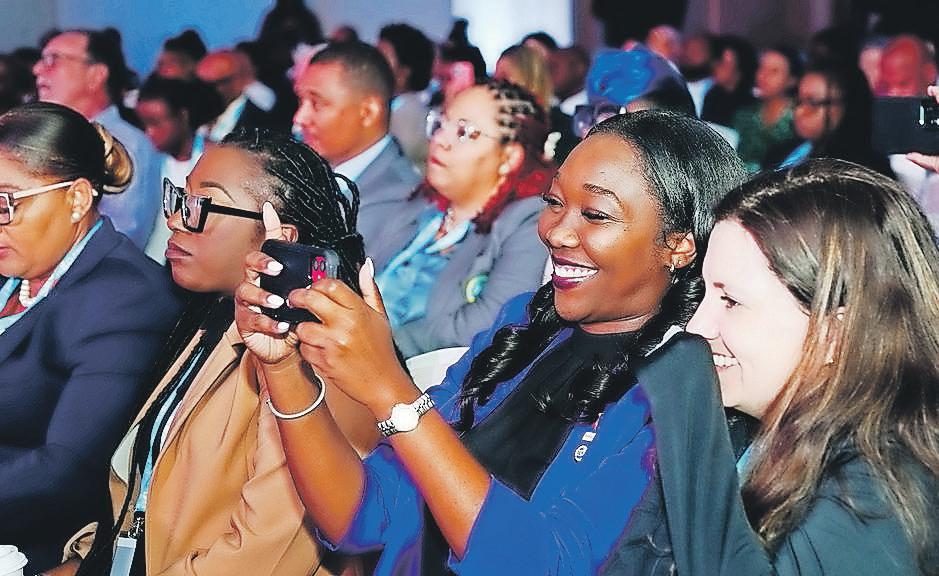

(AI) and immersive technology, discussed how AI is reshaping industries, particularly tourism and cus tomer service.
She stressed that AI should complement human exper tise rather than replace it, underscoring the need for businesses to integrate AI and quantum computing strate gically to enhance customer experiences and operational efficiency.
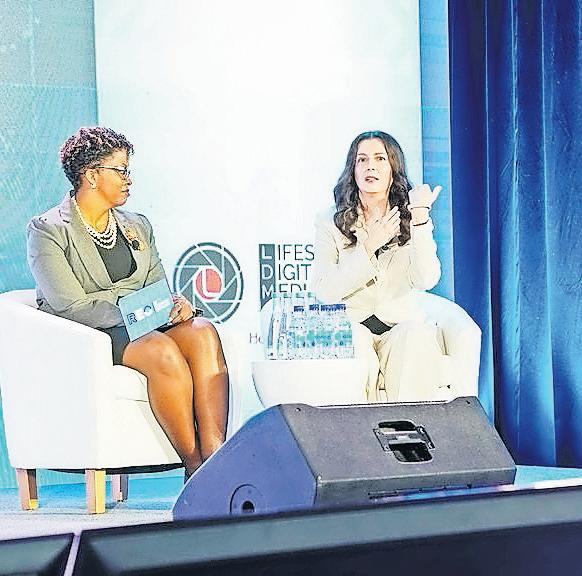
Admiral Mike Rogers (Ret), former NSA Director and head of US Cyber Command, addressed the increasing intersection between technology, national security, and economic stability.
He warned of the growing cybersecurity threats facing businesses and governments, emphasising that “The greatest challenge is not changing technology—it’s changing human behaviour.”
Rogers urged organisations to invest in cybersecurity measures to protect sensitive data and maintain resilience against cyberattacks.
Renato Grandmont, chief investment strategist at Morgan Stanley, explored the complexities of investing in times of uncertainty. He discussed the potential economic impacts of US policy changes, including trade tariffs, deregulation, and immigration reform.

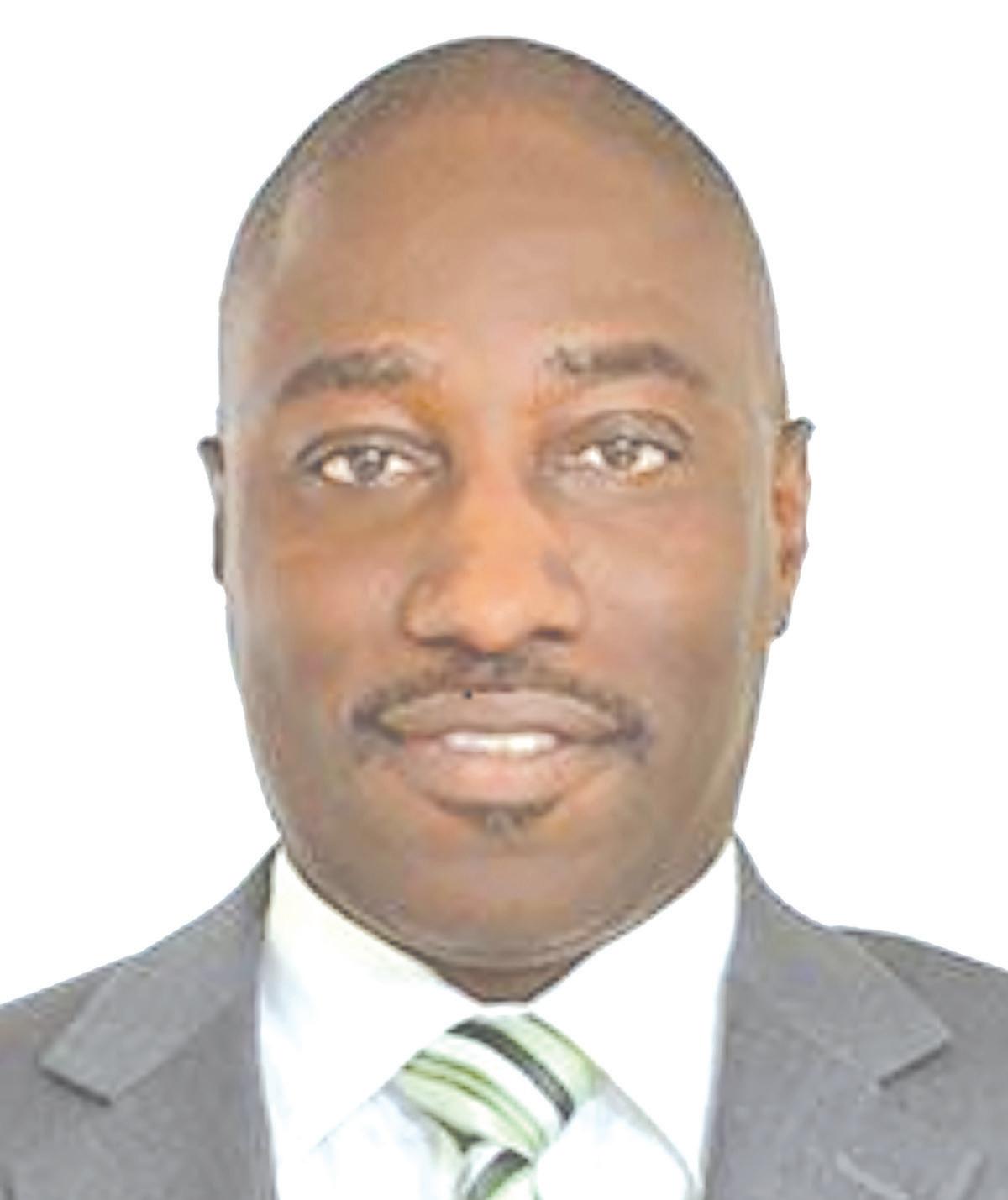

Grandmont also warned of the risks of “skyflation,” a scenario combining high inflation with stagnant growth, advising investors to maintain diversified portfolios while mitigating geopolitical risks.
A panel discussion, moderated by economist Marla Dukharan, focused on the future of the Bahamas’ cruise industry, balancing environmental sustainability with economic growth.
Panelists, including Ed Fields (EF Consultants), Joseph Gaskin Jr (Disney Cruise Line), and Mark Daniels (BRON), explored how Bahamian entrepreneurs can create authentic, culturally immersive experiences for visitors. Gaskin emphasised Disney’s commitment to collaborating with local communities to enhance tourism opportunities.
The event concluded with an inspiring session by Dr Kimberley Amirault-Ryan, a performance consultant who has worked with elite athletes in the NHL, NBA, and Olympics. Her presentation offered strategies for maintaining resilience and peak performance in high- pressure environments.
The RF Bahamas Economic Outlook Conference continues to be a premier platform for discussing the economic, political, and social forces shaping the future of the Caribbean. As the region faces an increasingly complex global landscape, the conference remains an essential event for industry leaders, investors, and policymakers.

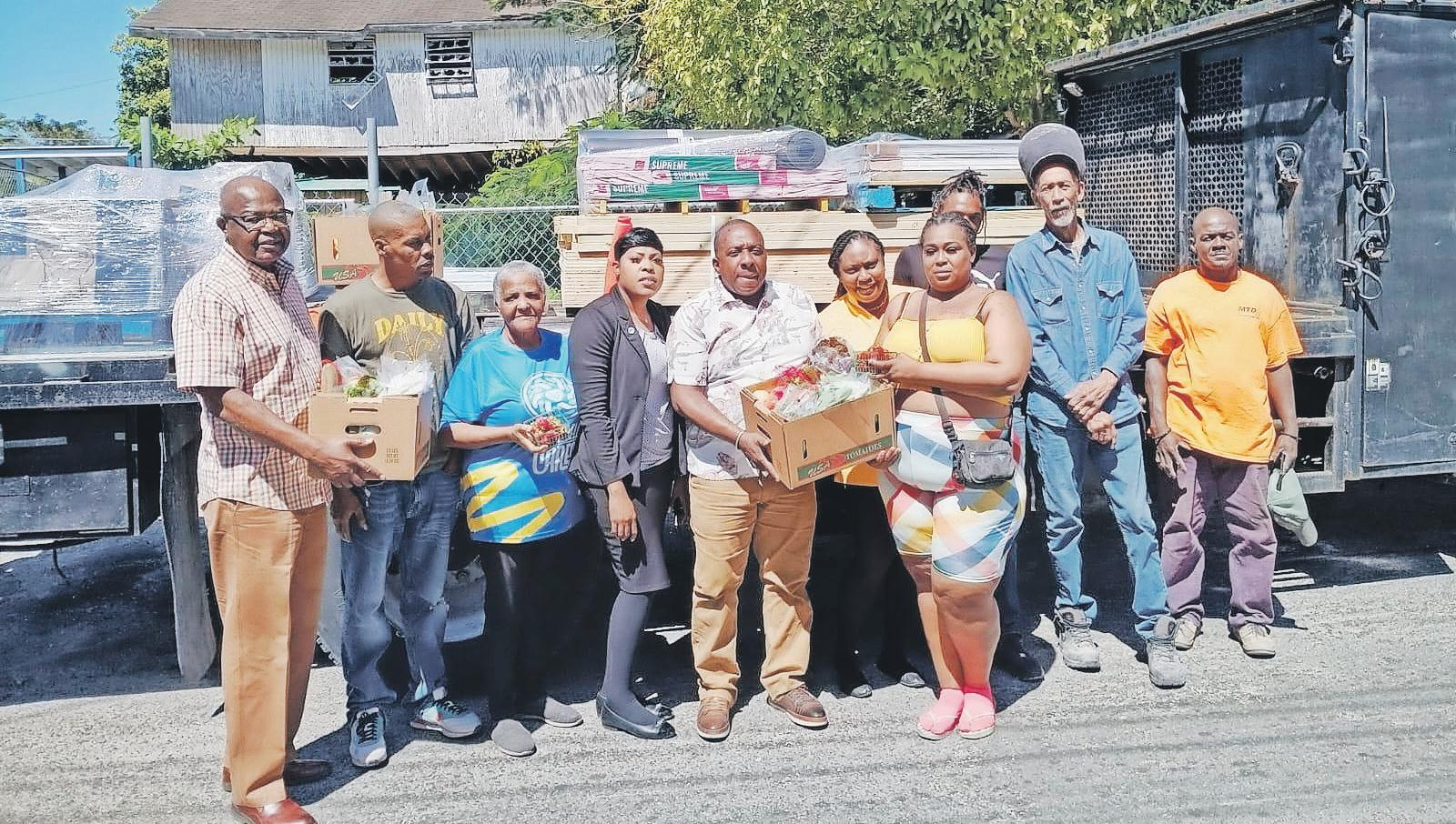
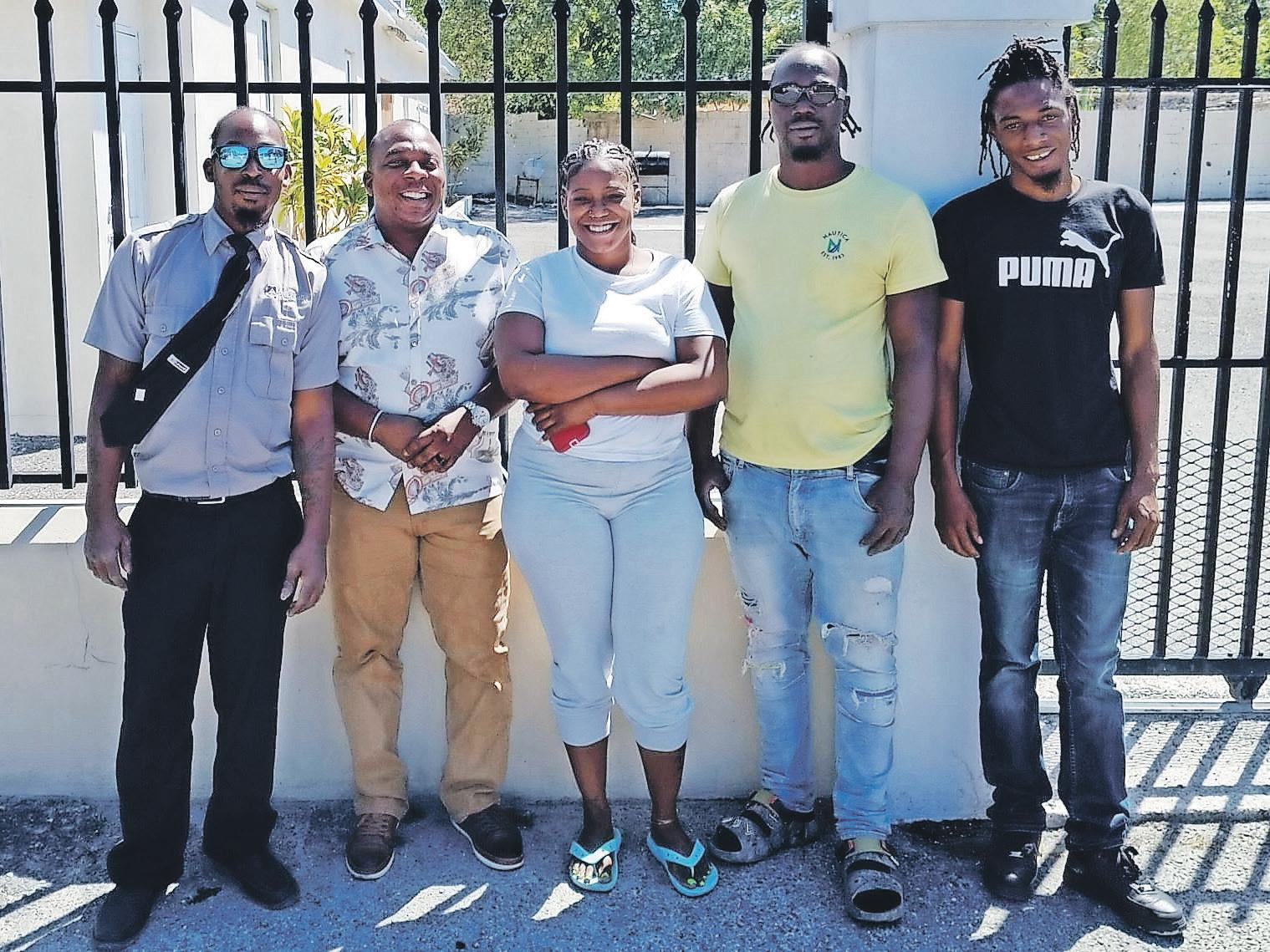
RECENTLY, Jomo Campbell MP and his team
made a donation to victims of a recent fire that devastated homes in Centreville.
Mr Campbell said: “We provided essential supplies to help them begin their rebuilding process.
“In times like these, community support is everything. We stand with our fellow residents, offering not just aid but also our prayers and encouragement as they work toward restoring their homes and lives.”


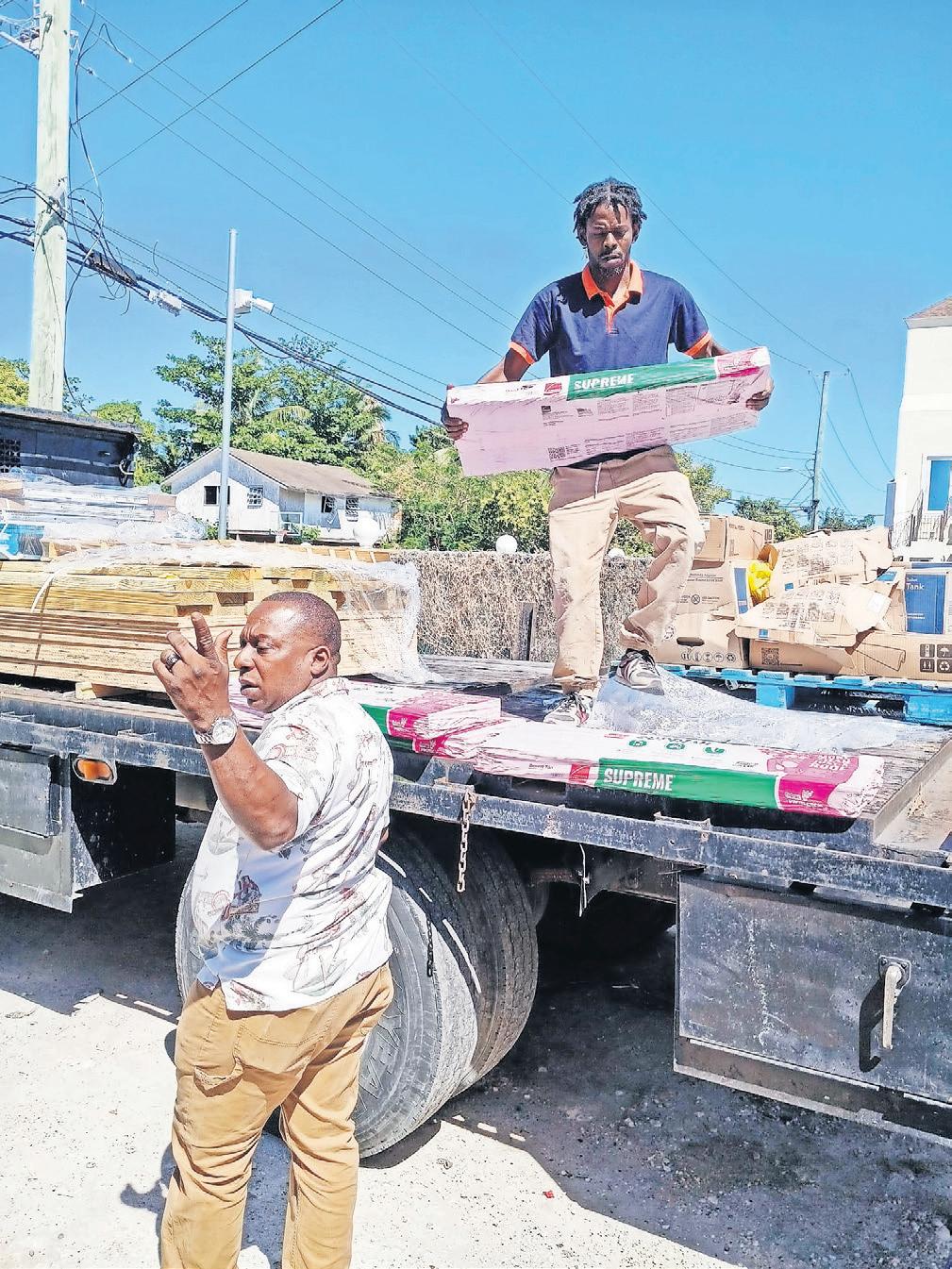


Mortimer-McKenzie has hailed the Chaise Bed as a “practical solution”.
A FURNITURE company is championing an innovative bed design.
The Chaise Bed is described as a four-inone multifunctional creation by Baha Furniture - switching between a bench, chaise lounge, twin-size bed, and full-size bed, making it an ideal choice for homes and spa environments alike.
“We believe the Chaise Bed is set to revolutionise the furniture industry,” said CEO Kenya Mortimer-McKenzie. “Its multifunctionality and contemporary design cater to the diverse needs of today’s consumers, offering a practical solution for those looking to maximise their space.”
The bed has a US patent and has won two gold medals at the InventHelp INPEX International Invention Shows. It also garnered internaional publicity in Pittsburgh in December. For more information, contact Kenya at info@ bahafurniture.com or visit the website at www. bahafurniture.com.




#256 Andros Beach Colony Subdivision, Nicholl’s Town, Andros Island Building 1,705 Sq. Ft.

Realtor- Kyla Ralston & Associates Limited Cara Collie – 1-242-427-8256 Listed Price BSD $88,200





Realtor- Carlyle RealtyCarlyle Campbell 242-601-4813 / 424-376-4215 Listed Price BSD $290,000


– Cara Collie 242-427-8256




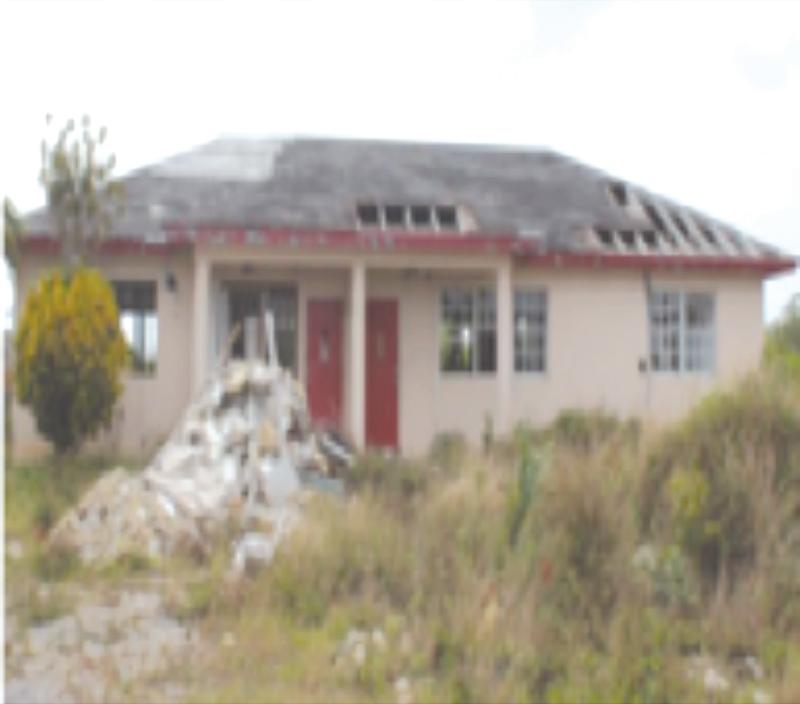
No. 143 Central Pines Subdivision, Abaco Building 1,890 Sq. Ft.


– Sand Solutions Telesha Sands-Pinder - 242 -602-7263
Price BSD $85,500